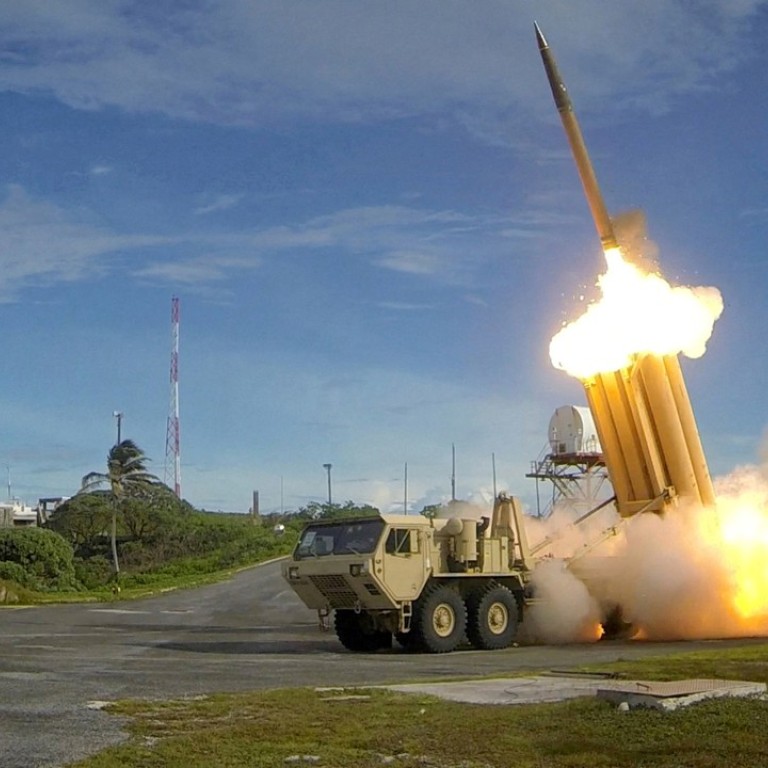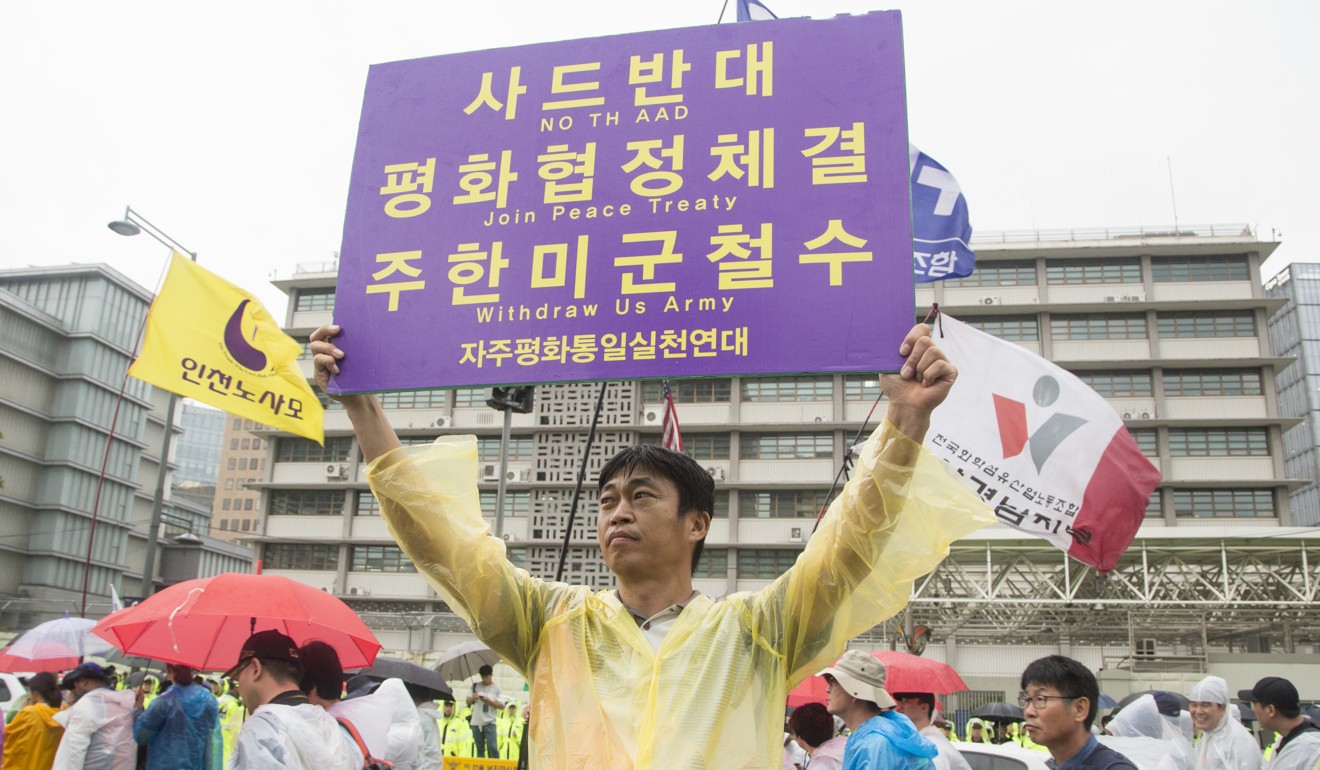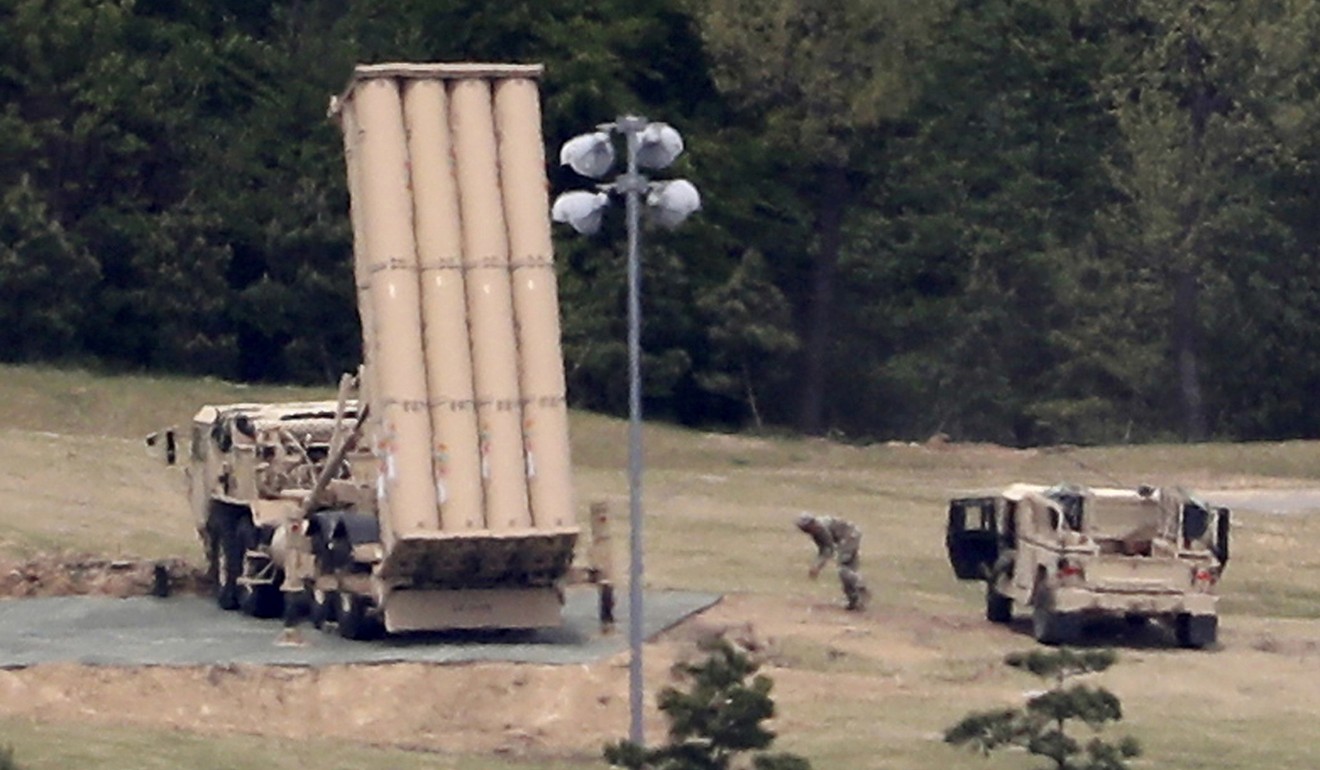
China-US mistrust over THAAD a ‘military relations failure’, US defence official says
Michael Pillsbury, a well-known China hand, says US faces uphill climb getting Beijing to accept US missile defence system’s deployment in South Korea
The mistrust between the US and China over the deployment of a US missile defence system on the Korean Peninsula is a “failure of military relations” between the sides, a long-time US defence adviser said, adding that persuading China that the system is not against it could be extremely difficult for the US.
Michael Pillsbury, a well-known China hand and former US Defence Department official, said on Tuesday that the US’ installation of a Terminal High Altitude Area Defence, or THAAD, system in South Korea has inflamed people in China’s military and intelligence operations to the extent that they believe the move is “part of a large American plot” to neutralise China’s nuclear deterrence capability against the US.

Although the dispute is “a failure of military relations between the US and China”, Pillsbury told a think tank event in Washington, there are “ways” to assure China that its belief about the purpose of THAAD is “simply not true”.
Pillsbury, who described himself as a “friend” of US President Donald Trump at the event, is also the author of the book, The Hundred-Year Marathon, which contends that China has a secret 100-year plan to replace the US as the global superpower. Pillsbury is now a director for Chinese strategy at the Washington-based Hudson Institute think tank.
Watch: Reactions to North Korea’s H-bomb test
Pillsbury’s comments come as the US moves ahead with THAAD deployment in South Korea to deter the growing threat from North Korea, which conducted a hydrogen bomb test for its intercontinental ballistic rocket on Sunday, an escalating move that drew worldwide condemnation.
South Korea’s defence ministry announced on Monday that it is ready to complete the deployment by installing four more THAAD launchers in addition to the two already in operation, South Korea’s Yonhap News agency reported.

THAAD gives South Korea the ability to intercept and destroy short- and medium-range ballistic missiles inside or outside the atmosphere during their final phase of flight, according to the Pentagon’s Missile Defense Agency.
China has strongly and consistently opposed THAAD deployment, worrying it “poses serious threats to China’s strategic security”, Cui Tiankai, China’s ambassador to the US in Washington, said in late July. The Chinese Foreign Ministry has urged the US to “stop the deployment process and remove relevant equipment”.
Pillsbury argued at the event that THAAD’s radar coverage “does not help very much” to monitor China’s military moves because the radar’s return is “very weak”. And the missile THAAD uses for interception is “very short range” so it doesn’t pose a threat to China’s security, he said.
Abraham Denmark, a former deputy assistant secretary for East Asia at the Pentagon, said at the event that China’s concern about THAAD “is not based on the range of radar, or the range of missile; it’s political”. He said Beijing’s concerns reflect “more of a fundamental suspicion about American intentions and the role of the US vis-a-vis China”.
While Pillsbury encouraged the US to find ways to mollify China by “showing them [THAAD’s] actual radar coverage” and its missile range, Denmark said “America’s role is first to defend itself and to defend our allies. Reassuring China of baseless suspicions is secondary”.

